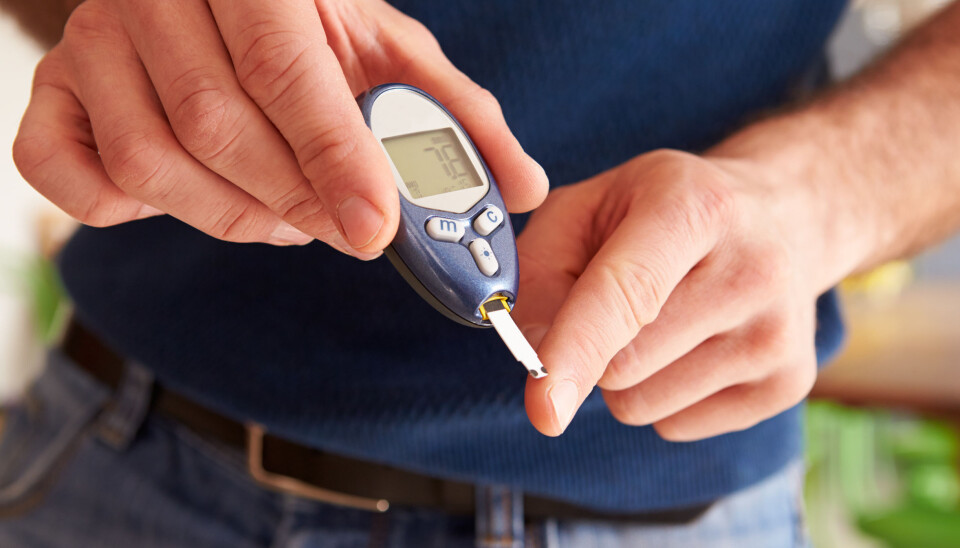
Can high blood sugar lead to dementia?
A Swedish study indicates that type 2 diabetics who fail to control their blood sugar levels properly run a higher risk of developing dementia. A Norwegian scientist thinks the Swedes might be jumping the gun.
Earlier research, including initiatives at the University to Oslo, has shown that people with type 2 diabetes run a higher risk of developing dementia. Similar links have not been found among patients with type 1 diabetes, which requires the use of insulin.
Researchers at the University of Gothenburg have now completed an extensive study of the association between blood sugar levels of type 2 diabetics and the risk of dementia. They used the blood test of HbA1c, which shows average glucose levels over a period of weeks or months.
HbA1c stands for glycated haemoglobin: the protein haemoglobin in red blood cells joins with the sugar glucose in the blood, and thus becomes “glycated”.
The study showed that patients with long-term high blood sugar levels (HbA1c over 10.5 percent or more) ran a 50 percent greater risk of developing dementia than those who had lower HbA1c values (6.5 percent or less).
“Our results show that better control of blood sugar among patients with type 2 diabetes can have a preventive effect on dementia,” says Aidin Rawshani, a researcher at Sahlgrenska Academy to expertsvar.se.
Not surprising
The study followed 350,000 persons with diabetes type 2, from 2004 until either the patients died, were diagnosed with dementia or until the study ended in 2012. None of the participants in the study had known dementia diagnoses at the outset. In the course of the first five first years of the study about 11,000 persons (3.2 percent) were admitted to medical care through hospitals with dementia diagnoses.
Tor Rosness, a physician and researcher at the University of Oslo, is not surprised by the results.
“In this study they have seen how many were admitted to hospital care with dementia and poorly regulated blood sugar levels. However, the link between diagnosed diabetes type 2 and the raised risk of dementia is already well known. That’s why the Swedish results are not so surprising,” says the doctor.
Researching the link
Rosness is currently a member of another research group which is investigating the connection between blood sugar levels and the development of dementia.
“Long-term measurements of blood sugar are important to understand the connection, as was done in the Swedish HbA1c study. But it is also just as important to learn how blood sugar levels affect the risk of dementia over a period of time among people who haven’t been diagnosed with diabetes,” says Rosness.
The research team he is a member of will be publishing the results of their work soon:
“It is too early to say whether one can prevent dementia through better blood sugar control, as the Swedish researchers claim,” he says.
-------------------------------------
Read the Norwegian version of this article at forskning.no
Translated by: Glenn Ostling










